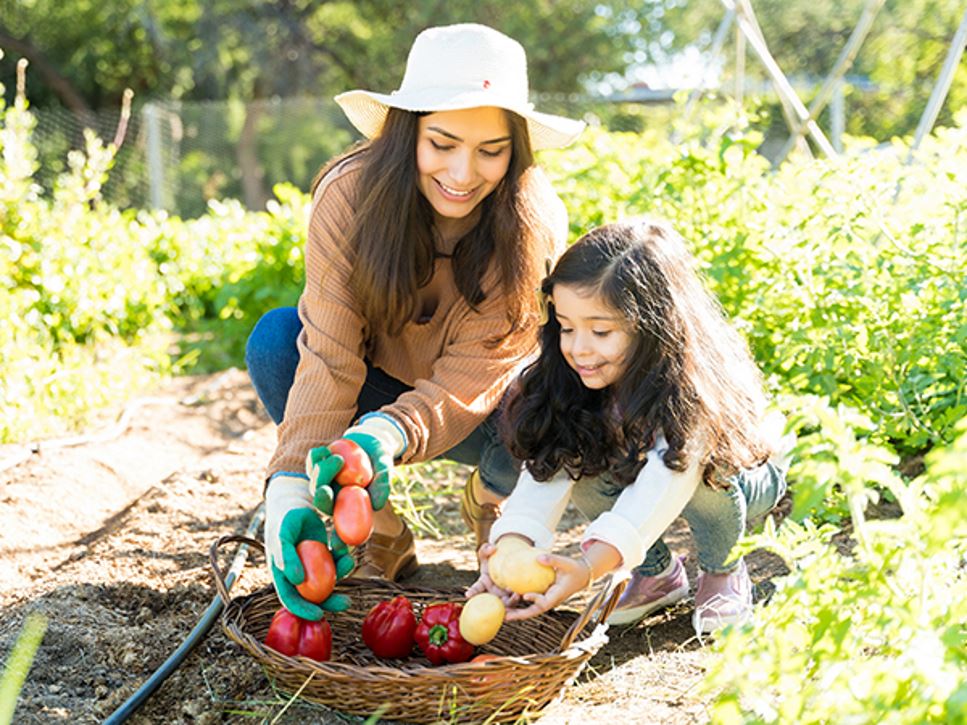Sustainable Gardening Practices for an Eco-Friendly Garden
Sustainable Gardening Practices for an Eco-Friendly Garden
Blog Article
Unlocking the Benefits of Horticulture: An In-depth Appearance at the Different Kinds and Their Influence On Well-Being
Discovering the complex benefits of horticulture exposes a range of methods that significantly improve specific well-being. As we analyze these diverse horticulture methods, it ends up being noticeable that their influence can resonate on individual, social, and ecological levels, motivating a closer look at exactly how these connections form a cohesive narrative of all natural health and wellness.
Kinds of Horticulture

Blossom gardening, another popular classification, stresses the aesthetic charm of cultivated flowers. This type can boost landscapes and promote biodiversity by drawing in valuable pollinators. Similarly, herb gardening entails growing fragrant and cooking plants, contributing both to cooking and natural solutions.
Container gardening deals adaptability, allowing individuals with restricted area to take part in gardening by utilizing pots and planters. This method is especially popular in city setups. Elevated bed gardening, on the other hand, entails creating raised plots that enhance soil drainage and ease of access, making it much easier for gardeners to manage their plants.
Finally, area horticulture cultivates cooperation amongst people in shared rooms, advertising social communication and collective responsibility. Each sort of horticulture serves unique purposes and accommodates various choices, making gardening a functional activity that can be tailored to specific demands and environments.
Mental Wellness Advantages
Taking part in various types of gardening not only generates substantial rewards such as fresh fruit and vegetables and stunning blossoms however also provides significant mental health advantages. Research indicates that horticulture can be an effective device for decreasing tension, stress and anxiety, and clinical depression. The act of often tending to plants and growing a yard cultivates a feeling of purpose and accomplishment, which can enhance overall emotional well-being.
Furthermore, gardening encourages mindfulness, as it needs individuals to concentrate on today moment, whether it be planting seeds or nurturing growth. This mindfulness practice can lead to reduced rumination and improved state of mind security. The direct exposure to native environments during gardening has actually likewise been linked to improved cognitive operating and decreased sensations of exhaustion.
Social communication plays a crucial role in psychological wellness, and neighborhood gardening initiatives give possibilities for individuals to get in touch with others, fostering a feeling of belonging. The common experience of gardening can cultivate relationships and support networks, even more bolstering psychological durability.
Physical Health Perks
Many people might not realize that horticulture additionally supplies substantial physical health and wellness advantages. Taking part in horticulture activities calls for a variety of physical activities, including flexing, lifting, digging, and growing, which collectively add to improved toughness, flexibility, and endurance. These activities can enhance cardio health by advertising an elevated heart price, thus reducing the threat of heart problem.
Additionally, horticulture can serve as a moderate-intensity exercise, assisting people achieve suggested physical activity degrees. Studies show that normal participation in horticulture can burn considerable calories-- approximately 200-400 calories per hour, depending upon the intensity of the jobs carried out. Such calorie expense is beneficial for weight monitoring and general metabolic health.
In addition, exposure to sunlight during gardening can assist in the synthesis of vitamin D, which plays an important duty in keeping bone health and sustaining immune function. The act of gardening commonly entails functioning with dirt, which has actually been linked to prospective psychological and physical health and wellness advantages due to the visibility of beneficial microorganisms.
Social Connections Through Gardening
The communal facets of gardening foster purposeful social links amongst people. Community gardens, in certain, work as lively centers where individuals from varied histories integrated, growing not just plants yet also partnerships. These common spaces urge cooperation, allowing people to trade understanding, abilities, and resources, thereby enhancing their gardening experience and fostering a sense of belonging.
Involvement in gardening tasks often causes the development of friendships and assistance networks. Individuals regularly join for typical goals, such as planting periods, harvest celebrations, or educational workshops, which enhance interpersonal ties and develop a sense of area. Such interactions can alleviate feelings of seclusion and improve psychological well-being, as individuals locate companionship and friendship in common ventures.

Environmental Impact of Gardening
Gardening dramatically adds to environmental sustainability in several methods. Among the most noteworthy advantages is the improvement of biodiversity. Home yards offer crucial environments for numerous varieties, including pollinators such as and butterflies, which are essential for ecological community wellness. By cultivating diverse plant varieties, gardeners can develop a balanced setting that supports both vegetation and animals.

Moreover, yards play an important function in water preservation. Tactical landscapes, consisting of indigenous plants and xeriscaping, lower water use and protect against overflow, thereby shielding regional waterways from air pollution.
Final Thought

Finally, gardening works as a complex activity that boosts well-being across numerous domains. The varied kinds of gardening-- consisting of you can try here veggie, flower, natural herb, container, and elevated bed-- add to psychological and physical health, foster social links, and advertise environmental sustainability. By taking part in gardening methods, people can experience improved lifestyle while likewise sustaining neighborhood bonds and eco-friendly health. Inevitably, the holistic advantages of gardening highlight its importance as find more info an essential element in improving total well-being.
Report this page